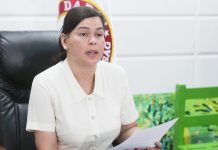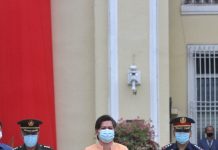The development of bare forestlands to provide a steady income to local communities was one of the main objectives of the municipality of Kiamba in Sarangani Province when it supported the Community-Based Forest Management Agreement (CBFMA), covering 5,750 hectares, between the T’Boli of Falel Community Association, Inc. (TFCAI), an indigenous people’s organization, and the Department of Environment and Natural Resources (DENR). The agreement was signed ten years ago.
Kiamba, a long time partner of the United States Agency for International Development’s (USAID) Philippine environmental governance project in forest and forestland management, has been helping TFCAI get external support to finance its community development as well as livelihood programs.
This includes the linkage with the Rocky Mountain Arabica Coffee Company (RMACC), Inc, a Canadian-based corporation engaged in the production of Arabica coffee. Arabica is considered a higher value added product than other varieties of coffee. EcoGov provided technical assistance to Kiamba, and facilitated the forging of stronger partnership with the private sector, a key stakeholder in forestland development.
TFCAI and the community farmers of Falel will finally benefit from this public-private partnership with the signing of an agro-forestry development agreement. Under this agreement, the RMACC will help TFCAI develop 100 hectares of the CBFMA within five years into an Arabica coffee farm.
The coffee is expected to be organically produced and conform to standards set by the Specialty Coffee Association of America (SCAA). This agreement promises to create jobs for over 100 farmers, and has the potential to catalyze additional investment and business opportunities for the community of Falel in the form of processing facilities and ancillary services.
The signing was witnessed by the LGU represented by Kiamba mayor Rommel Falgui, Sarangani governor Miguel Dominguez and DENR-12 forest management chief Armando Pangawilan.
It is estimated that the community members of Falel can generate as much as Php 5.6 million (USD 123,077) net annual income when its initial 25-hectare coffee plantation becomes fully productive at year five.
These figures are conservative, given that a larger area of forestland (100 ha) will be available, and it normally takes 18 months for coffee trees to bear fruit. Importantly, this will increase the incomes of farmers, who currently earn between Php 1,300 (USD 28.60) and Php 1,700 (USD 37.36) per month. Under the agreement, RMACC will also provide free seedlings to T’boli coffee farmers which have value of about Php1.3 million (USD 28,571).
The company will also fund the training and capability building activities for the farmers. Under the corporate social responsibility action plan of RMACC, an amount of at least Php10,000.00 (USD 220) per month shall be made available to TFCAI to support livelihood and services for its members. PR/ECOGOV






